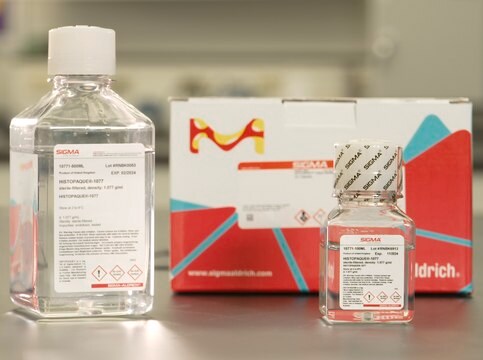01-2030
Bovine Serum Albumin
SAJ special grade, powder
Synonym(s):
Albumin bovine serum, BSA, Bovine albumin
About This Item
Recommended Products
grade
SAJ special grade
form
powder
mol wt
~66 kDa
composition
N, 14.5-16.4%
availability
available only in Japan
Looking for similar products? Visit Product Comparison Guide
Biochem/physiol Actions
Preparation Note
Storage Class Code
11 - Combustible Solids
WGK
WGK 3
Flash Point(F)
Not applicable
Flash Point(C)
Not applicable
Regulatory Listings
Regulatory Listings are mainly provided for chemical products. Only limited information can be provided here for non-chemical products. No entry means none of the components are listed. It is the user’s obligation to ensure the safe and legal use of the product.
JAN Code
01-2030-1-1G-J:
01-2030-2-25G-J:
01-2030-3-5G-J:
01-2030-4-10G-J:
Choose from one of the most recent versions:
Already Own This Product?
Find documentation for the products that you have recently purchased in the Document Library.
Our team of scientists has experience in all areas of research including Life Science, Material Science, Chemical Synthesis, Chromatography, Analytical and many others.
Contact Technical Service



